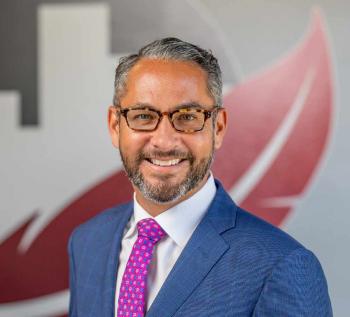Image Caption
By Shari Narine
Windspeaker Contributor
TORONTO
Supply Change, a digital Aboriginal Procurement Marketplace, will help non-Indigenous corporations support economic reconciliation by connecting them with qualified Aboriginal companies.
It’s an opportunity that has been a long time in the making, said JP Gladu, CEO and president of the Canadian Council of Aboriginal Businesses, which is driving the initiative coming this fall.
Initially, members asked CCAB to advocate and create networking opportunities.
“It’s become very acute in the last few years that our members are now saying, ‘You know what? We need to find businesses that are ready to do it, to see if we can create the market place for this to happen. Don’t only advocate on our behalf and raise the awareness of the importance of Aboriginal business procurement, but also create the space for it to happen.’ That’s what we’re doing right now,” said Gladu.
This past January, CCAB soft-launched Supply Change, recruiting 28 corporations to serve as Aboriginal Procurement Champions. The goal is to have 40 corporations signed up as champions by the end of 2018. In this role, the corporations commit to increasing procurement opportunities for Aboriginal-owned businesses. They also pledge to motivate companies within their networks to advance Indigenous-business inclusion.
ORIGIN Recruitment is one of four Aboriginal-owned companies serving as Aboriginal Procurement Champions. The company is headquartered in Fort William First Nation, Ont. with a training centre in Thunder Bay. It works to establish partnerships and business relationships between Indigenous businesses and non-Indigenous businesses and industry, increasing the number of Indigenous people employed and participating in economic ventures.
Owner Paul Giles says Indigenous-owned businesses like ORIGIN Recruitment play an important role in CCAB’s latest initiative.
“Who can promote the cause better than those trying to accomplish the cause?” he said.
Indigenous- owned companies want to encourage more Indigenous -owned companies to participate because it drives the Indigenous economy which leads to improved individual health and wellness, he said.
The other three Indigenous owned Aboriginal Procurement Champion—Fisher Powerline Construction, Tuccaro Group and Bouchier Group—all have offices in Fort McMurray in northern Alberta.
If there’s any doubt as to the impact procuring Indigenous services or hiring Indigenous people can have, Gladu points to the Fort McKay First Nation, located 45 minutes north of Fort McMurray. The average per capita earning for a Fort McKay First Nation resident is $73,500, compared to $50,000 per capita for an Albertan and $38,000 for a Canadian.
Gladu says CCAB is working with its certified Aboriginal businesses (must be 51 per cent Aboriginal-owned) to get them qualified to bid on contracts when approached by corporations or small and medium enterprises through the digital Aboriginal Procurement Marketplace. It’s just as important, he adds, that the contracts be available when Aboriginal businesses are ready to bid.
“It’s a real interesting balance to walk to advance this market place,” said Gladu.
While Aboriginal companies may not be large enough to compete on some major projects, Gladu points to a practise undertaken by Suncor, one of the 24 non-Indigenous Aboriginal Procurement Champions. Suncor promotes Indigenous development by using CCAB’s Progressive Aboriginal Relations (PAR) program to check the track records of the companies they contract, to see how those companies fare in hiring Indigenous personnel and procuring services from Indigenous companies.
CCAB has been operating PAR since 2001. The program certifies companies on four different levels in their interactions with Indigenous communities, including recruiting and retaining Indigenous employees; developing business relationships with Aboriginal-owned businesses; and providing financial and in-kind support to community initiatives. Suncor is PAR certified at the highest level.
There are 43,000 Aboriginal-owned businesses in Canada, representing three per cent of businesses country-wide, while Aboriginal people form five per cent of the country’s population.
“There’s still a lot of work to bring those numbers up to where they should be, which is equivalent,” said Giles, who says initiatives like Supply Change will help, as will a changing attitude in Canadians overall.
Giles points to statistics released by Sodexo, also an Aboriginal Procurement Champion and PAR certified at the highest level, indicating that 80 per cent of Canadians recognize that Indigenous businesses strengthen the country’s social fabric, 73 per cent think that corporations should support Indigenous entrepreneurs, and 76 per cent believe that supporting Indigenous businesses is a pathway toward reconciliation.
“I think that time is now,” said Giles.
Gladu agrees. He says calls to action by the Truth and Reconciliation Commission, Prime Minister Justin Trudeau prioritizing the country’s relationship with Indigenous peoples, late singer Gord Downie’s challenge to Canadians to “do better,” and First Nations winning 90 per cent of their court cases make this “probably the coolest time to be Indigenous in modern recent history.”
“I’m really excited about the future of the Indigenous economy,” said Gladu.
The digital Aboriginal Procurement Marketplace will be launched at CCAB’s gala in Vancouver on Sept. 27.

